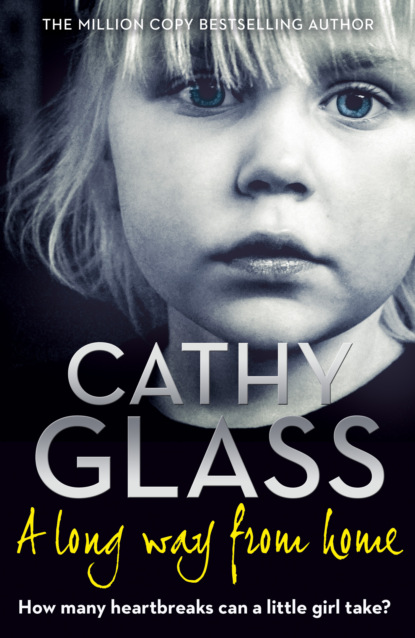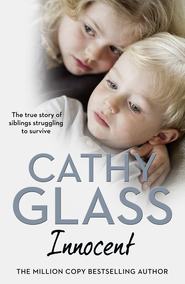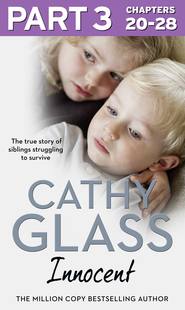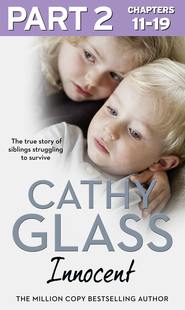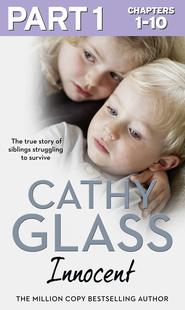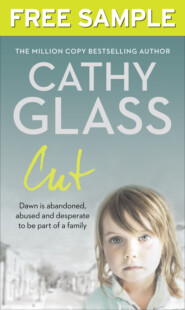По всем вопросам обращайтесь на: info@litportal.ru
(©) 2003-2024.
✖
A Long Way from Home
Настройки чтения
Размер шрифта
Высота строк
Поля
Chapter Twenty: Bad at Home (#litres_trial_promo)
Chapter Twenty-One: Review (#litres_trial_promo)
Chapter Twenty-Two: Frightened of Her Daughter (#litres_trial_promo)
Chapter Twenty-Three: Save a Child (#litres_trial_promo)
Chapter Twenty-Four: A Family Torn Apart (#litres_trial_promo)
Chapter Twenty-Five: Ian (#litres_trial_promo)
Chapter Twenty-Six: Missing Her (#litres_trial_promo)
Chapter Twenty-Seven: Bad Ending (#litres_trial_promo)
Chapter Twenty-Eight: A Long Way from Home (#litres_trial_promo)
Suggested topics for reading-group discussion (#litres_trial_promo)
Cathy Glass (#litres_trial_promo)
If you loved this book … (#litres_trial_promo)
Moving Memoirs eNewsletter (#litres_trial_promo)
About the Publisher (#litres_trial_promo)
Acknowledgements (#u9073f284-5e55-5d63-a8bc-7bff284f481b)
A big thank you to my family; my editors, Carolyn and Holly; my literary agent, Andrew; my UK publishers HarperCollins, and my overseas publishers who are now too numerous to list by name. Last, but definitely not least, a big thank you to my readers for your unfailing support and kind words. They are much appreciated.
Anna’s Story (#u9073f284-5e55-5d63-a8bc-7bff284f481b)
Some stories have to wait to be told to gain the full picture and a better understanding of what happened. Anna’s story is one of them.
PART I
THE PARENTS’ STORY (#u9073f284-5e55-5d63-a8bc-7bff284f481b)
Chapter One
Lana (#u9073f284-5e55-5d63-a8bc-7bff284f481b)
Although the children weren’t babies, they appeared as helpless as the day they were born. Dressed only in nappies and ragged T-shirts, they were sitting or lying on the hard floors, or incarcerated in their cots. Their large eyes stared out blankly from emaciated faces. Some children were obviously disabled, others not, but all were badly undernourished and clearly developmentally delayed. The four rooms in the orphanage were hot and airless in the middle of summer. Flies circled around the broken ceiling fans and buzzed against the grids covering the windows. The only toys in any of the rooms were a few balls and a handful of building bricks, but no child played with them. And the silence was deafening and unnatural. Not one of the thirty or so infants cried, let alone spoke.
‘This nice one,’ the care worker said in broken English, pausing at a cot containing a Down’s syndrome boy. ‘He no give you trouble.’
Elaine looked with renewed horror at the child rocking back and forth in the cot. A few wisps of fair hair covered his otherwise bald head, open sores bled on his lips and his face was so pale it was doubtful he had ever felt the sunlight. He stared blankly into the distance. Elaine went to speak to him but the care worker was already moving briskly to the next cot. ‘Or this one,’ she said, tapping the metal bars of the cot and ignoring the fact that the child had been sick.
Elaine fought back tears and looked to her husband to say something.
Ian cleared his throat. The care worker – a large, brusque woman – seemed to be in charge. He didn’t know what role she played and didn’t want to upset her and risk their chance of a child. ‘I’m sorry, we don’t understand,’ he said, almost apologetically. ‘We were supposed to adopt a particular child. She’s called Lana. We have a photograph of her here in our paperwork.’ He went to unclip his briefcase.
The care worker tapped his arm. ‘No. No. Lana, that baby dead. You choose another baby. We have plenty.’
Elaine’s hand shot to her mouth. ‘Dead? When?’ she cried.
‘We weren’t told,’ Ian said.
The care worker shrugged. ‘You on plane.’
‘She died yesterday?’ Elaine asked, horrified.
‘Maybe too late to tell you. You choose another baby. Plenty. Over here.’ She led the way to another cot on the far side of the room.
‘I want to go,’ Elaine said, taking Ian’s arm.
‘We are leaving,’ he said to the care worker, who was waiting for them by the cot.
‘You come here and see baby. Talk to it.’
‘No!’ Elaine cried.
‘You no want baby?’ the care worker asked, a mixture of incredulity and impatience.
‘Not like this,’ Ian said. ‘We came here for Lana and you tell us she is dead. We are very upset.’
‘But you can choose another baby,’ she said, as though they were in the wrong.
‘No,’ Ian said firmly. ‘We can’t.’
‘Suit yourself,’ she said, clearly offended. Leaving the cot, she headed out of the room and towards the main door, a bunch of keys jangling at her hip. They followed. ‘Lots of other parents come here and take our babies,’ she snapped.
‘But not us,’ Ian said, annoyed.
They waited while she unlocked the door. Ian hung back as Elaine stepped outside. ‘Where’s the doctor we’ve been dealing with?’ he asked. ‘He was supposed to meet us here.’
The care worker shrugged, either not understanding or refusing to answer.
‘Dr Ciobanu,’ Ian tried again. ‘We spoke to him on the phone. Is he here?’
She shook her head. ‘You go now. I’m busy.’
‘You tell him we came?’ he said, but she pushed at his arm, signalling for him to leave.
Ian and Elaine stepped outside and the large metal door clanged shut behind them. A lone child screamed from inside.
Elaine burst into tears and Ian put his arm around her. ‘I don’t believe it,’ she sobbed. ‘All this time, working towards the adoption, and that heartless woman tells us our baby is dead.’ Although they’d never met little Lana, they’d felt a bond with her ever since they’d first received her details and photograph, and considered her their daughter. This was supposed to have been the final stage in the adoption process that had begun nearly two years before and had included a detailed social worker’s report, references, medicals, and endless form filling and expectation. Today they should have met Lana for the first time, given the doctor their paperwork and signed the forms for court. And while they waited for the court hearing they would have visited Lana each day, loving her more and more. But that had all come to an abrupt and distressing end. Their baby had died.
Другие электронные книги автора Cathy Glass
Innocent




 0
0





